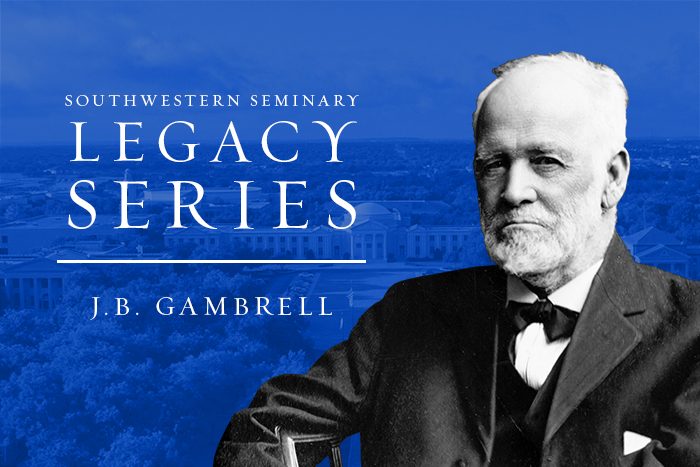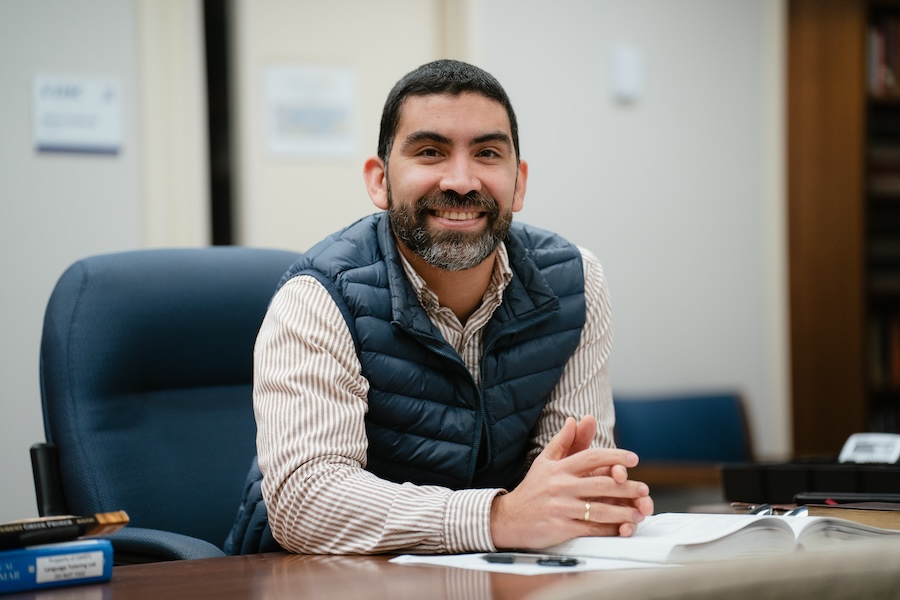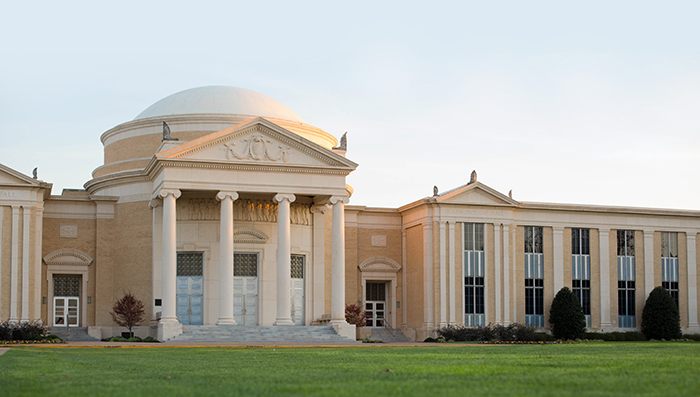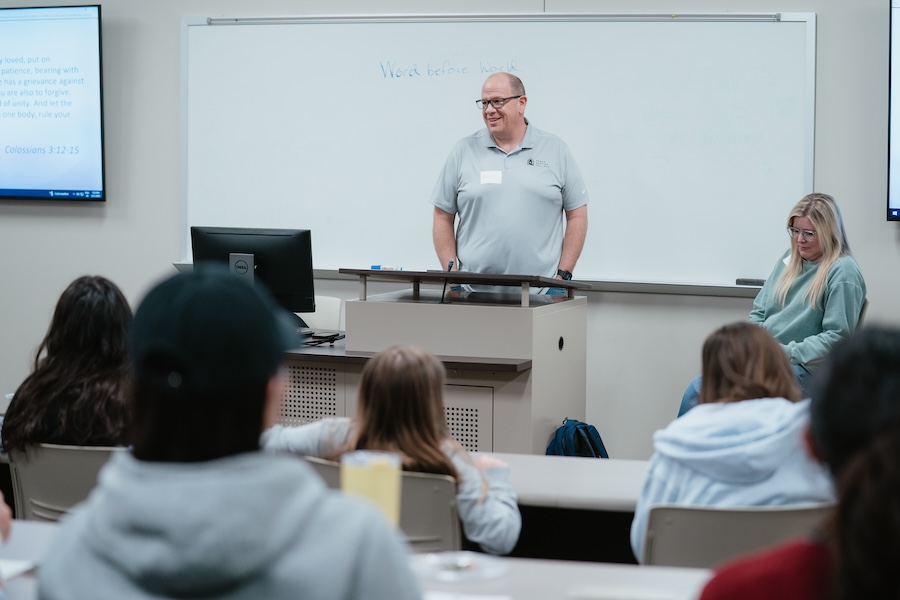SWBTS Legacy: J.B. Gambrell

In 1841, a boy like any other was born in Anderson, S.C. He grew of age on a farm in Mississippi and attended country schools. By any standard, they were unremarkable boyhood years. But make no mistake—James Bruton Gambrell was born to be a fighter.
J.B. Gambrell accepted the call of Christ at a revival meeting in 1856, at age 15. He had a noteworthy thirst for books, and he familiarized himself with all the books available within several miles of his home. His parents envisioned a good education for their son, but the Civil War interrupted, and at 20, he volunteered in the Confederate Army, serving for 28 months as a scout for Robert E. Lee, distinguishing himself by his daring exploits.
On one of his expeditions, he met Mary Corbell in Nansemond County, Va. A year later, he returned and slipped through enemy lines, and they were married at midnight. The war shaped many men, but few were more dynamic than the scout who snuck behind enemy lines to steal away his beautiful bride. In 1867, after the close of the war, Gambrell began preaching, returning to his unremarkable beginnings—the church where he spent his boyhood.
But war had stirred a fervent can-do spirit that would shape his life’s work. Gambrell would go on to define institutions that would serve Baptists at the local and national levels, fighting for Baptist ideals. He fought for Southwestern Baptist Theological Seminary, for the Baptist General Convention of Texas, for world initiatives, and, above all, for the souls of men.
“You are fighting the devil for a soul, and you can’t afford to be impatient,” he wrote in his essay “Up Fool Hill.” Persistent, and straightforward, he ever was.
In 1870, Gambrell began the practice of writing every day. When The Baptist Record, the newspaper of the Mississippi Baptist Convention, was launched, Gambrell was named its editor, aiding in the development of a strong denominational consciousness. While affirming local autonomy, Gambrell urged Southern Baptists to unite toward global evangelism. In 1881, he moved the paper to Clinton, Miss., where a church selected him as pastor.
There, Gambrell threw himself into the fight to drive away saloons. In 1887, his son, Roderick Dhu Gambrell, a journalist who also crusaded against the liquor trade, was assassinated in the streets of Jackson, Miss. The leader of the liquor forces was found not guilty, and a mob collected to punish the acquitted man. Gambrell made a powerful plea to the mob to disperse, fighting to save the life of the man who had killed his own son.
Gambrell toiled on. In 1890, J.M. Frost of Virginia began advocating for the organization of a Sunday School board for the Southern Baptist Convention. Though Gambrell opposed it, they wrote a joint report that was unanimously adopted, and in May 1891, Frost founded the Baptist Sunday School Board, which later became LifeWay Christian Resources.“Baptists talk themselves together,” Gambrell said.
In 1893, Mercer University in Macon, Ga., elected Gambrell its president. Three years later, the Baptist General Convention of Texas was being torn apart by critics and had no official leader; Gambrell felt the call to go. Directors held an all-night prayer meeting and chose as secretary a little-known man from Georgia: At age 55, Gambrell was elected unanimously, and he served 13 years. Gambrell made an immediate impact on Texas Baptist life and was heralded as a brilliant organizer and motivator.
In 1907, the BGCT unanimously approved the founding of Southwestern Baptist Theological Seminary, and Gambrell—along with D.I. Smyth and A.J. Barton—applied for its charter. Gambrell was elected president of its board of trustees, stepping up to lead during the seminary’s fledgling years, a role he filled from 1908-12.
Beyond such formative tasks as overseeing the election of Southwestern Seminary’s first president and faculty, Gambrell steered the immense task of picking up the young school from its home in Waco and transporting it to Fort Worth in 1910. Furthermore, he twice enriched the seminary faculty as a professor of ecclesiology—first from 1912-14, then from 1916-21. He remained connected with Southwestern Seminary for the rest of his life, inspiring a zeal for evangelism among its student body.
Gambrell pressed a vigorous schedule, teaching four days a week, then spending two days in the offices of The Baptist Standard, the BGCT’s newspaper, where he had been named editor. He had a firm view of liberty of speech and argued vigorously that no one should be denied the right to preach his doctrine. “We would be willing to fight so that Catholics, Presbyterians, infidels, and all sorts might have freedom of thought and freedom of speech,” he wrote in 1909.
In 1910, Gambrell retired from the BGCT; four years later, he was called back and served two more years. Its education board had been merged with its board of directors, and the combined administrative work was heavy for a man of 73. After that term, he declined re-election.
In 1917, Gambrell began three terms as SBC president, laboring during a period of economic and social reconstruction in the South. In 1920, a precedent of many years was broken, and Gambrell was elected for the fourth time as president.
Gambrell was a strong supporter of the foreign missionary enterprise, and in July 1920, he attended the London Conference of Baptists, representing the SBC. The meeting launched a fund to support missionary work in Europe. Gambrell regarded this conference as the most far-reaching in significance of any meeting the Baptists ever held. After its close, he and educator E.Y. Mullins visited Baptists throughout England and Europe. Gambrell exerted himself tirelessly; he did not know that his heart was weak.
In December, they returned home. Gambrell accepted many invitations, going at full stride. On Feb. 24, 1921, he arrived by train in Fort Worth and decided to walk uptown. On the way, he suffered a heart attack from which he would never fully recover.
Gambrell returned to Dallas and was bedridden—except on Sunday, May 29, 1921, when he attended a service at First Baptist Church to hear J.H. Rushbrooke, Baptist World Alliance commissioner, preach. It was his last public appearance. He weakened until June 10, 1921, when he died at home.
Today, with his name attached to numerous public sites, including a street on the Southwestern Seminary campus, Gambrell’s fighting spirit has been immortalized, and his words remain an encouragement to all Southern Baptists: “God’s Word is plain. A Baptist has only to read and obey. He need not be a scholar, or a philosopher, though he may be both. He has no trouble to explain away what is written. He can read it and go by it without embarrassment.
“He can afford to be plain, simple, straightforward, and obedient. … I am a Baptist because John was, Jesus was, the apostles were, the first churches were, and all the world ought to be.”



